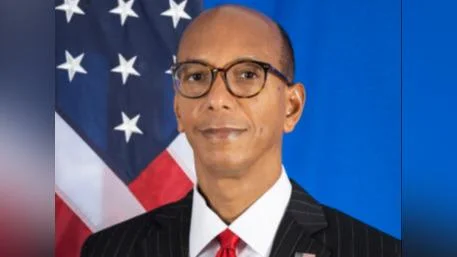The United Nations Security Council held a briefing focused on the Great Lakes Region of Africa, where the United States expressed grave concern over the ongoing situation in eastern Democratic Republic of the Congo (DRC). During the briefing, the U.S. strongly condemned the ongoing violence, particularly by the M23 rebellion, and called for an immediate cessation of hostilities. They urged holding all parties accountable for human rights violations.
“The United States remains deeply concerned by the situation in eastern DRC, and we strongly condemn the continued violence, including by M23. We urge all parties to immediately cease hostilities and to hold accountable those responsible for human rights abuses.”
In line with Security Council Resolution 2773, the U.S. demanded that the M23 withdraw from territories under its control and emphasized that Rwanda must stop its support for M23 and pull back its troops from the DRC.
“As Resolution 2773 calls for, M23 must fully withdraw from all territory of which it has taken control. Rwanda must cease support for M23 and withdraw all troops from the DRC. We are encouraged by M23 and RDF withdrawal of forces from Walikale.”
The United States further called on Rwanda and other regional countries to respect the sovereignty of the DRC. They acknowledged the DRC's willingness to engage in direct talks with M23.
“We call on Rwanda to respect the sovereignty and territorial integrity of the DRC and further call on all countries in the region to do the same. We are encouraged by the DRC’s willingness to hold direct talks with M23.”
The U.S. emphasized the importance of an African-led process as a path towards a durable resolution, with the support of the UN’s broad mandates and resources to assist regional peace initiatives.
“A cohesive, African-led process remains the most viable path toward a lasting solution, and we hope the UN’s good offices, broad mandates, and vast institutional knowledge in the Great Lakes can be brought to bear to support these regional peace initiatives.”
The statement also highlighted the need for better coordination between regional and UN mechanisms to avoid redundant efforts and to keep commitments on track.
“Greater coordination between regional and UN mechanisms is needed to prevent forum shopping and duplication of efforts. We reject any action by the parties to delay commitments, amass negotiating leverage, or distract the international community from further escalation.”
The U.S. conveyed appreciation for Special Envoy Huang Xia’s work in aiding regional nations and organizations towards peace.
“We welcome Special Envoy Xia’s use of his position to assist regional countries and organizations in their efforts towards peace.”
It has been twelve years since the adoption of the Peace, Security and Cooperation Framework. Yet, it remains far from fully implemented. The U.S. reaffirmed its commitment to backing initiatives aimed at ending the conflict in the region.
“Twelve years after its adoption, the Peace Security and Cooperation Framework remains far from both being fully implemented and realizing its foundational goal of ending recurring cycles of violence in this region. While root causes persist, the United States remains committed to supporting an end to this conflict.”
The U.S. concluded by asserting the enormous potential of the Great Lakes region for shared prosperity through lasting peace and stability.
“We believe the Great Lakes region has immense potential for shared prosperity through enduring peace and stability. That is why the United States sent a recent high-level delegation to the region. But this conflict must end. Only then will the region be able to unlock its full potential.”
###

